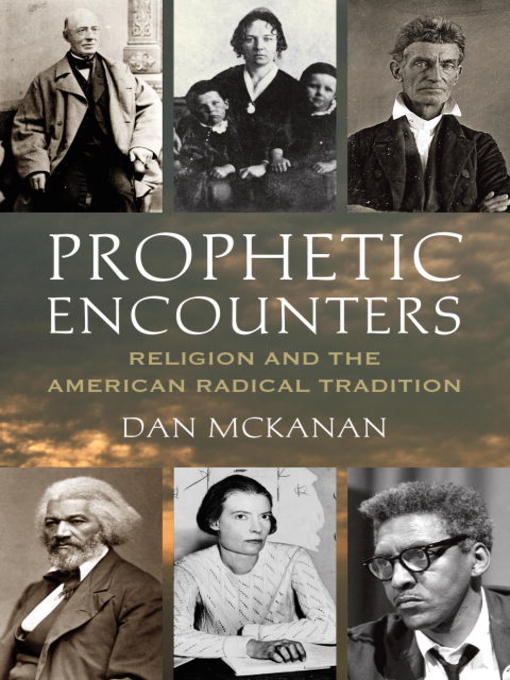A broad, definitive history of the profound relationship between religion and movements for social change in America
Though in recent years the religious right has been a powerful political force, making “religion” and “conservatism” synonymous in the minds of many, the United States has always had an active, vibrant, and influential religious Left. In every period of our history, people of faith have envisioned a society of peace and justice, and their tireless efforts have made an indelible mark on our nation’s history.
In Prophetic Encounters, Dan McKanan challenges simple distinctions between “religious” and “secular” activism, showing that religious beliefs and practices have been integral to every movement promoting liberty, equality, and solidarity. From Frederick Douglass, John Brown, and Elizabeth Cady Stanton in the nineteenth century to Dorothy Day, Martin Luther King Jr., and Starhawk in the twentieth, American radicals have maintained a deep faith in the human capacity to transform the world. This radical faith has always been intertwined with the religious practices of Christians and Jews, pagans and Buddhists, orthodox believers and humanist heretics. Their vision and energies powered the social movements that have defined America’s progress: the abolition of slavery, feminism, the New Deal, civil rights, and others.
In this groundbreaking, definitive work, McKanan treats the histories of religion and the Left as a single history, showing that American radicalism is a continuous tradition rather than a collection of disparate movements. Emphasizing the power of encounter—encounters between whites and former slaves, between the middle classes and the immigrant masses, and among activists themselves—McKanan shows that the coming together of people of different perspectives and beliefs has been transformative for centuries, uniting those whose faith is a source of activist commitment with those whose activism is a source of faith.
Offering a history of the diverse religious dimensions of radical movements from the American Revolution to the present day, Prophetic Encounters invites contemporary activists to stand proudly in a tradition of prophetic power.
- Available now
- New eBook additions
- New kids additions
- New teen additions
- Most popular
- Try something different
- See all ebooks collections
- Available now
- New audiobook additions
- New kids additions
- New teen additions
- Most popular
- Try something different
- See all audiobooks collections



